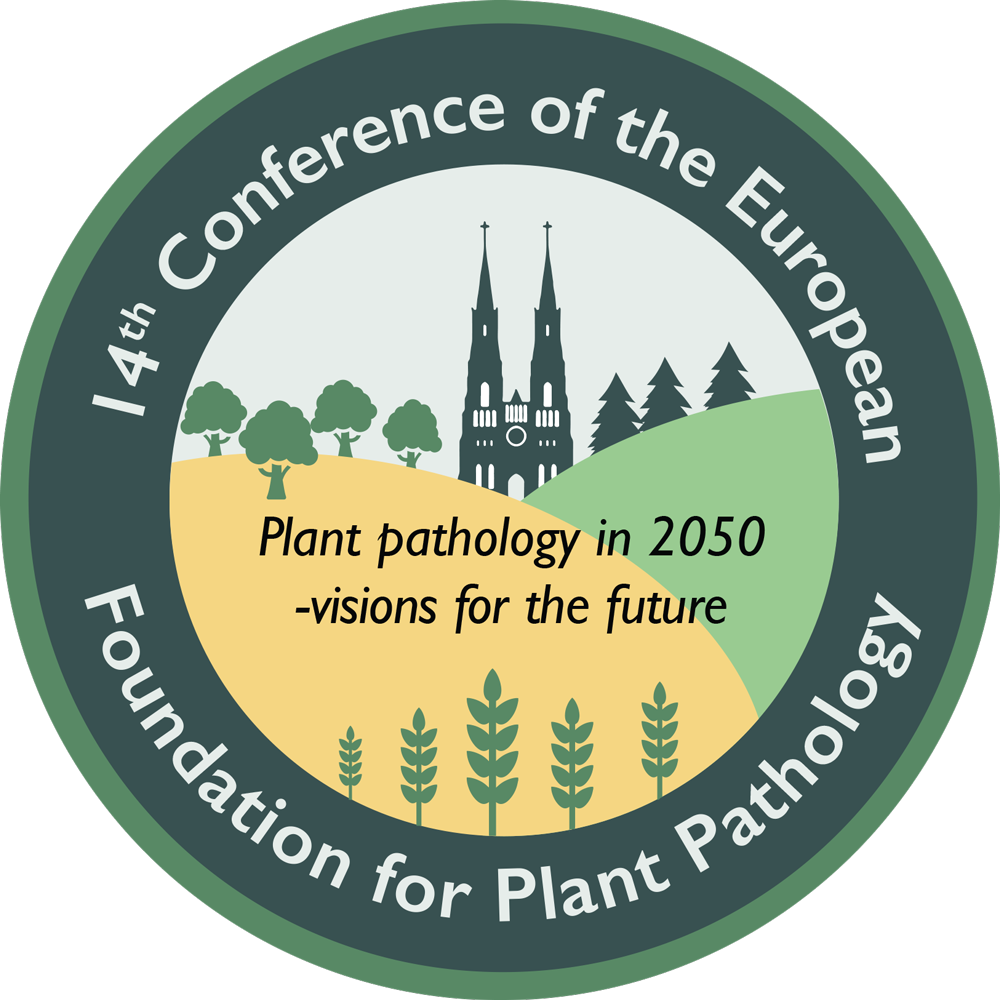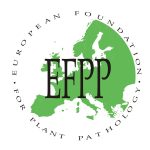Keynote Speakers
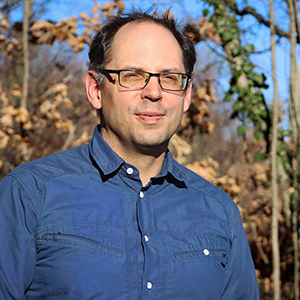
Daniel Croll
Professor of Evolutionary Genetics
Daniel Croll is a Professor of Evolutionary Genetics and Director of the Institute of Biology at the University of Neuchâtel, Switzerland (Assistant Professor 2017-2022, Full Professor 2023-). He currently serves as the Director of the Institute of Biology (2024-) and the Western Switzerland Microbiology Doctoral Program (2022-). He completed his PhD in 2009 at the University of Lausanne, followed by a postdoctoral position at the ETH Zurich with Prof. Bruce A McDonald. Daniel received a Swiss National Science Foundation Advanced Postdoctoral Fellowship to join the lab of Prof. James Kronstad at the University of British Columbia in Vancouver from 2013-14. Daniel returned to Switzerland as a junior group leader and lecturer at the ETH Zurich from 2015-16. Daniel has a broad range of interests ranging from population genetics, microbiology, bioinformatics and conservation genomics.
Time and date
will be announced shortly
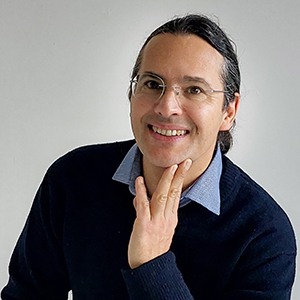
Armin Djamei
Professor of Plant Pathology
Armin Djamei is currently Professor of Plant Pathology at the University of Bonn, Germany. His research career has been characterised by the study of plant-microbe interactions, with a particular focus on biotrophic fungi and their effectors, in particular studies of effectors from the fungus Ustilago maydis and how they manipulate plant defences and signalling pathways to promote infection. Prof Djamei’s research focus on effectors and their role in manipulating plant signalling pathways has paved the way for new insights into plant pathology. Prof Djamei has held several senior positions at prominent institutions such as the Leibniz Institute IPK Gatersleben and the Gregor Mendel Institute of Molecular Plant Biology in Vienna.
Time and date
will be announced shortly

Malin Elfstrand
Professor in Forest Pathology
Prof. Malin Elfstrand is Professor in Forest Pathology at SLU, Uppsala. After completing an MSc in biology at Uppsala University, she received a PhD in forest tree cell and molecular biology at SLU, in 2001. After a postdoctoral stay at the University of Basel in Switzerland, she returned to SLU, where she has been active at the Department of Forest Mycology and Plant Pathology. Malin Elfstrand’s research focuses on forest trees and molecular and genetic knowledge of disease resistance to prevent diseases on forest trees and increase forest health.
Time and date
will be announced shortly

Sarah Gurr
Chair in Food Security
Professor Sarah Gurr is the Chair in Food Security at Exeter University. Her research interests lie in the field of plant disease, with a particular focus on fungal infestations and their global movement and control. She obtained her PhD from Imperial College of Science, Technology and Medicine and was presented with the Huxley Medal. She held a postdoctoral fellowship at St Andrews University and subsequently became an independent Royal Society University Research Fellow. She was subsequently appointed as a Lecturer and Fellow at Somerville College, before being promoted to Reader and Professor at Oxford University. Prof. Gurr has served on numerous scientific committees and advisory boards, including being the first female President of the British Society of Plant Pathology (BSPP). Sarah held the Donders Chair (Honorary) at Utrecht University and is currently a Visiting Professor at the same institution. Professor Gurr has authored a significant number of publications, patents, and contributed to the UK Government Foresight report on “Biological Hazards.” In 2019, 2023, and 2024, she was listed among the most highly cited researchers worldwide (Clarivate Analytics).
Time and date
will be announced shortly
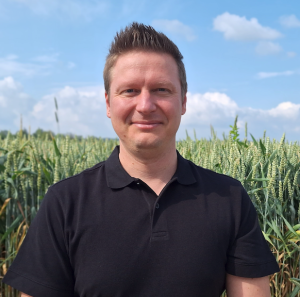
Thorsten Langner
ERC Research Group Leader at the Max Planck Institute
Thorsten Langner is since 2023 ERC Research Group Leader at the Max Planck Institute for Biology, Tuebingen, in Germany. His research focus plant pathogens and their constant coevolutionary conflict with their hosts. Selective forces imposed by the host plants have shaped the pathogen genomes and left molecular signatures in virulence related proteins. He use a multidisciplinary approach, including comparative genomics, evolutionary biology, genetics, as well as biophysics and structural biology to dissect the mechanisms that facilitate chromosome-scale, structural genomic variation, and the impact of these variants on molecular plant-pathogen coevolution. Ultimately, Dr. Lagner and his group aim to exploit these fundamental insights to inform pathogen surveillance and disease resistance engineering against the cereal blast fungus Magnaporthe oryzae.
Time and date
will be announced shortly
![Tatsuya Nobori IMG_8332[25] Tatsuya Nobori](https://www.efpp2025.com/wp-content/uploads/sites/42/2024/12/Tatsuya-Nobori-IMG_833225_resized_.jpg)
Tatsuya Nobori
Group Leader
Tatsuya Nobori is a Group Leader at The Sainsbury Laboratory (TSL) in Norwich, UK. After completing his Ph.D. at the Max Planck Institute for Plant Breeding Research (Cologne, Germany) in 2019, he conducted postdoctoral research at the Salk Institute (San Diego) as a Human Frontier Science Program Long-term Fellow before joining TSL in 2024. His lab explores the molecular and spatiotemporal dynamics of individual cells comprising the holobiont–the collective entity of the host and surrounding microbes–by developing and integrating new genomics and imaging technologies tailored to study plant-microbe interactions.
Time and date
will be announced shortly
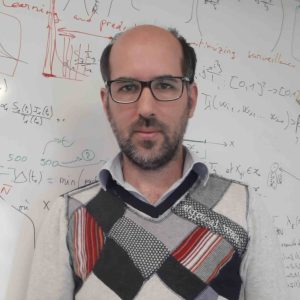
Samuel Soubeyrand
Group Leader
Dr. Samuel Soubeyrand is a senior researcher at INRAE’s Biostatistics and Spatial Processes (BioSP) unit in Avignon, France. In 2021, he became Deputy Head of the Plant Health and Environment (SPE) division of INRAE and joined the steering committee of the French platform for plant health epidemiosurveillance (Plateforme ESV). Dr. Soubeyrand’s research focuses on statistics, data analysis, and spatio-temporal modeling, with applications in epidemiology and ecology. His expertise includes spatial point processes, mechanistic-statistical modeling, outbreak reconstruction from genomic data, models for pathogen emergence, pathogen spread, and exposure-hazard. Throughout his career, Dr. Soubeyrand has developed several analytical tools and models, such as tropolink, a web application for exploring air-mass trajectories and the spatial connectivity they generate. Dr. Soubeyrand has been involved in numerous research projects, including the EU-funded BeXyl (2022-2026) about Xylella fastidiosa, as well as the ANR project BEYOND (2021-2026) about epidemiosurveillance. His work has essentially contributed to advance the understanding of pathogen dynamics.
Time and date
will be announced shortly
Also confirmed
- Eduardo Sáenz de Cabezón Irigaray, Universidad de La Rioja, Al tools in plant pathology: Risks and opportunities
- Monica Höfte, Ghent University
Contact
Academic Conferences - administration of EFPP 2025
E-mail: efpp2025@akademikonferens.se
Phone: +46 18 67 10 03
Important dates
2024
Nov Abstract submission opens
Nov Registration opens
2025
31 Jan Abstract submission closes
1 Mar Abstract notification
15 Mar Early bird closes
Mar Final program
2-5 Jun Conference
